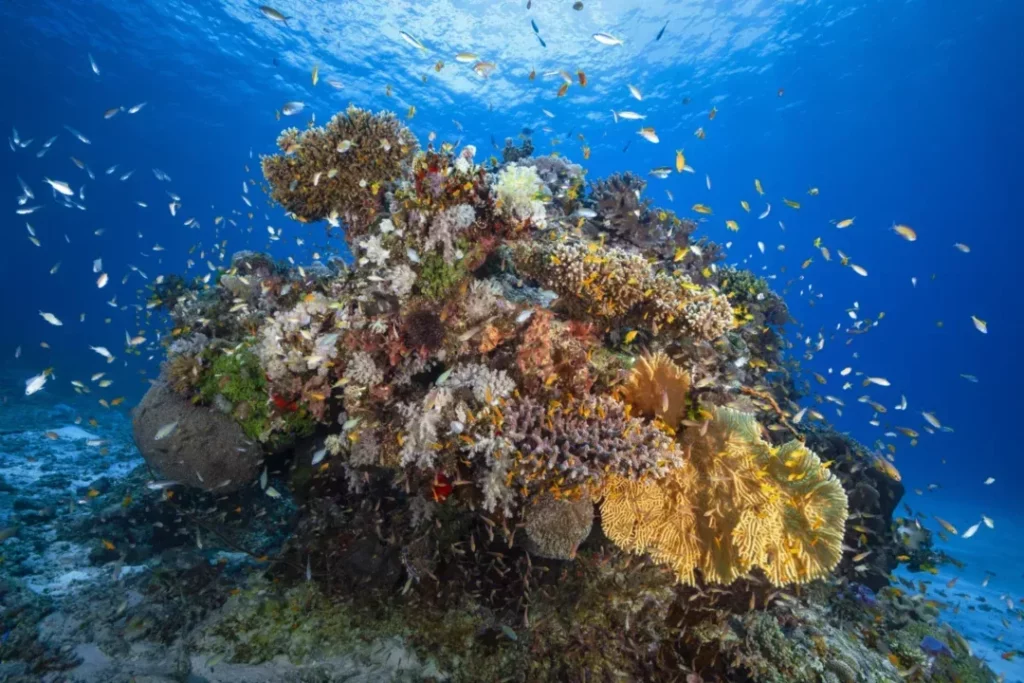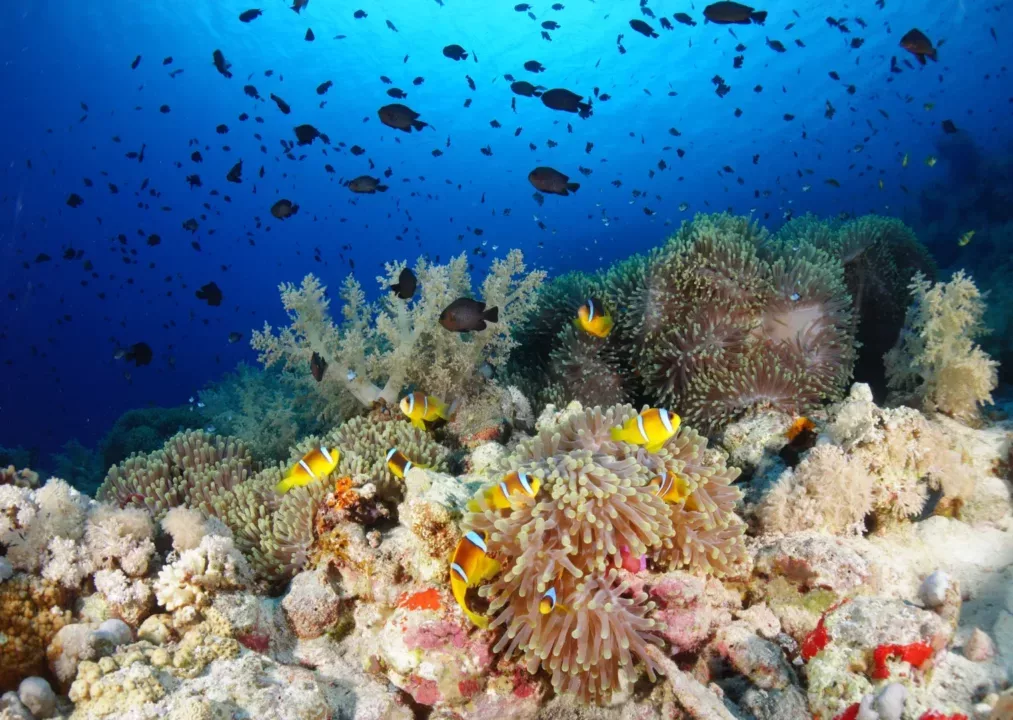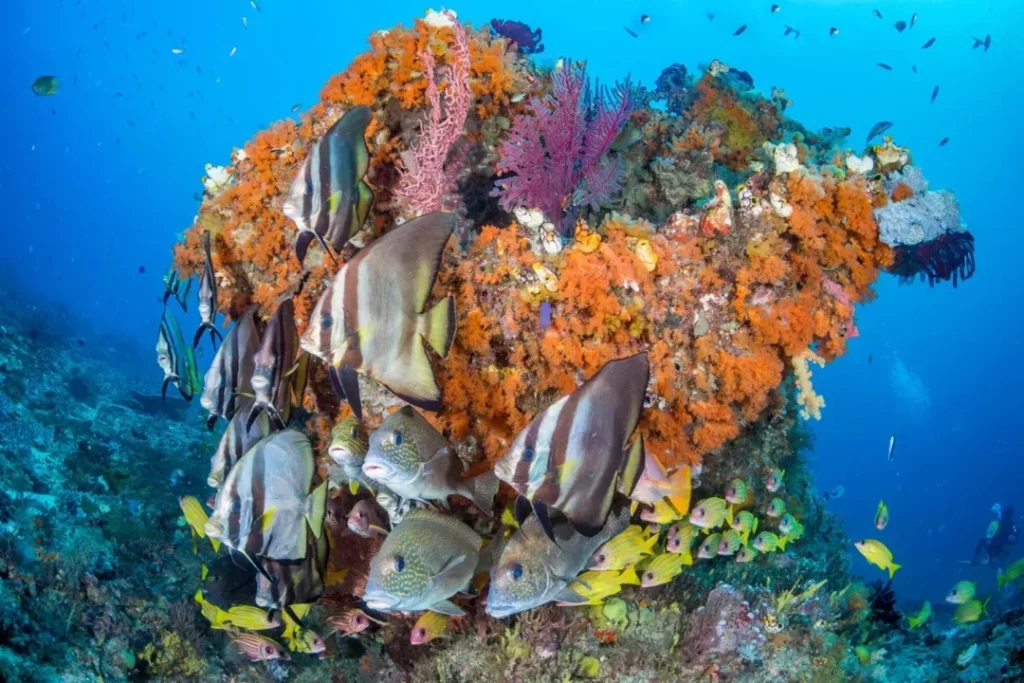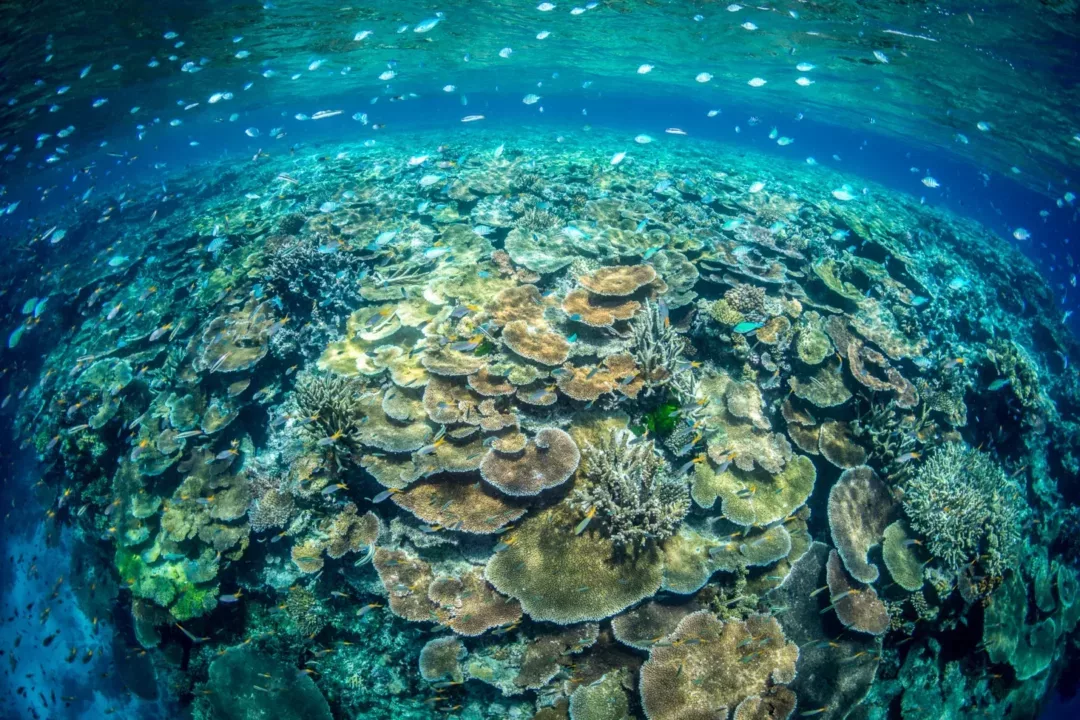New ICRI member CORDAP releases R&D Technology Roadmap for understanding natural adaptation and assisted evolution of corals to climate change.

The IPCC predicts that if warming reaches 2°C, 99% of all coral reefs will be lost in less than 30 years. If corals lack what it takes to naturally rapidly adapt to new environmental regimes, they may fail to survive a warming ocean. CORDAP just released a roadmap for harnessing the potential of assisted evolution to help save corals worldwide.
It is clear that to ensure the future of corals, the highest priority must be reducing global greenhouse gas emissions. However, even with swift and substantial reductions in emissions, corals will continue to face increasing temperatures for the foreseeable future, which can result in extensive coral mortality and local extinction of some coral species.
While recent studies have shown that corals may exhibit some degree of adaptation to ocean warming, it is unclear whether corals are able to survive the rate of temperature change during heat waves that will become more frequent under several climate change scenarios. This is where assisted evolution could be a game-changer.
Growing our understanding of the power of adaptation
In January 2023, CORDAP held a workshop on assisted evolution co-organized with the Australian Institute of Marine Sciences (AIMS) as part of CORDAP’s Scoping Studies. The aim was to develop a visionary roadmap, offering recommendations on how to prioritise assisted evolution in R&D investment in the future.
Assisted evolution is the use of human interventions to speed up the natural evolutionary process. It may allow coral species to adapt faster than they would if left unaided, allowing reefs and corals to keep better pace with the ocean’s environmental changes.
The first step in creating this strategy was to pinpoint where we are now in our understanding regarding the potential and impacts of assisted evolution on enhancing coral tolerance to stress conditions like ocean warming. Our experts unanimously agreed that assisted evolution methods cannot be understood and evaluated without a solid foundational understanding of natural adaptation, and identified some knowledge gaps that can be closed with relatively minimal effort and others that will require substantial investment of time and resources.

Key Findings:
- Standardising methods, experimental designs, species selection guidelines, and terminologies will help to understand natural adaptation and assisted evolution more rapidly.
- Long-term funding is critical to facilitate multigenerational studies, which are needed to deliver essential but largely missing information about coral evolution.
Building the best pathway for research and investment
CORDAPs roadmap sets out tangible recommendations for future investment and research, to help fill critical knowledge gaps that could assist natural adaptation and evolution of coral reefs in a warming world.
Overall, the roadmap recommends investment in a mixed portfolio of R&D, ranging from technologies with lower perceived risks to those with higher perceived risks and longer R&D horizons. This strategy is advised because of the uncertainty around future heating trajectories and thus requirements for enhancement of tolerance.

The roadmap outlined four main areas of work that need to be undertaken:
- Leading global coordination and synthesis.
Recommendation: Building global infrastructure to support research would dramatically accelerate the generation of knowledge around the natural and assisted evolution of corals. This could include compiling and committing to a set of standards and methods that will allow more studies to be used in predictive models, as well as establishing a global resource-sharing network and database to facilitate meta-analysis and synthesis.
- Optimising generation and use of knowledge.
Recommendation: Make sure new studies are well designed and timely. Optimize published and future studies by characterizing relationships between heat stress metrics and other facets of coral fitness. Having funding set aside to be able to quickly respond to bleaching events will ensure vital knowledge is captured rather than lost if and when those events occur.
- Filling critical knowledge gaps in multigenerational coral data in the laboratory and field.
Recommendation: Given the slow-growing nature of coral, longer-term funding would allow researchers to gain critical knowledge needed to estimate the multi-generational benefits and risks of implementing assisted evolution methods in the wild. Standardised approaches repeated in different parts of the world would add confidence to generalise those results.
- Supporting the advance of existing and new technologies.
Recommendation: Methods that may yield a larger effect (e.g., gene editing, hybridisation between species, and assisted migration) are also potentially of greater risk and would need considerable R&D. Expanding support for some of the riskier long-term projects currently being overlooked, could potentially offer a greater return on investment, but should be balanced with continued investment in less risky technologies.
CORDAP will be using these recommendations to prepare new accelerator program and we believe that they will assist academia in understanding gaps and needs for future research as well as helping to guide funding agencies on where their money will be most effective.
The roadmap identifies the funding structures and research priorities that are most likely to yield the knowledge needed to ensure that assisted evolution methods can be implemented effectively. Ultimately, conserving and restoring coral reefs in warming climates will require an inclusive infrastructure involving many partners at a local, national, and international level.
Download the full report to find out the priorities of research and funding for understanding natural adaptation and assisted evolution of corals to climate change, from CORDAP.
SOURCE – CORDAP Press Release

